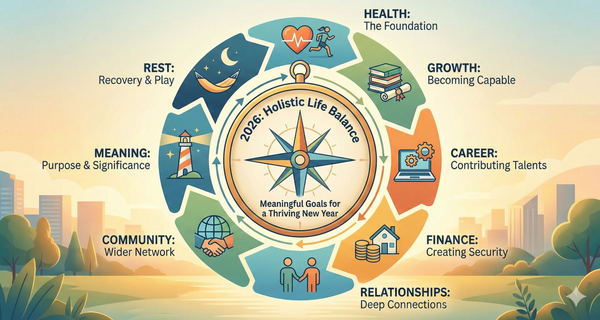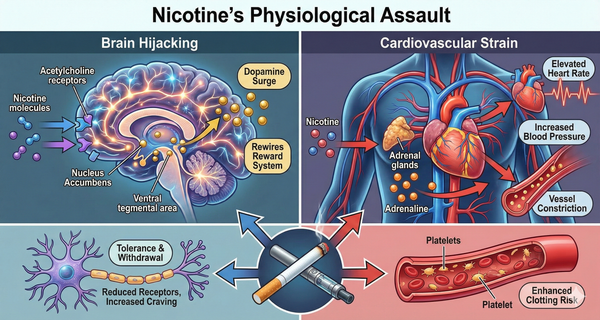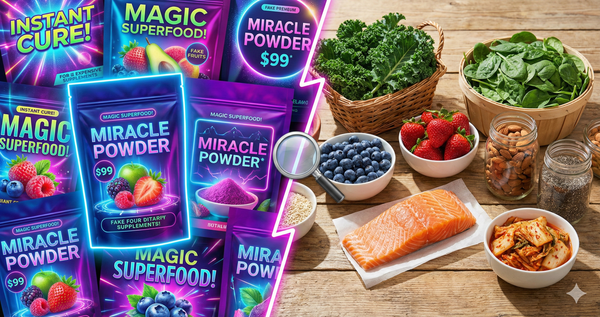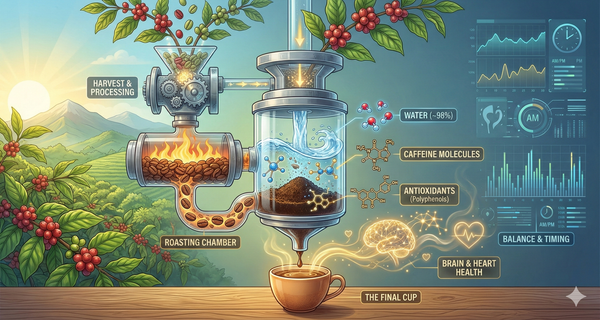Dopamine Explained: The Brain Chemical Driving Motivation and Reward
What Is Dopamine?
Dopamine is a powerful brain chemical that plays a central role in how we experience pleasure, motivation, and reward. Often called the “feel-good” neurotransmitter, dopamine is much more than just a simple pleasure molecule. It is a fundamental driver of human behavior, influencing everything from our mood and focus to how we move our bodies. Understanding dopamine is key to unlocking insights into our own minds and optimizing our overall well-being.
The Role of a Neurotransmitter
As a neurotransmitter, dopamine acts as a chemical messenger, transmitting signals between neurons (nerve cells) in the brain. When the brain releases dopamine, it travels across a tiny gap called a synapse and binds to a receptor on a neighboring neuron, passing along its message. This signaling process is crucial for a wide range of brain functions. Different pathways in the brain use dopamine to carry out specific tasks, such as managing emotional responses, enabling coordinated movement, and, most famously, powering the reward system that encourages us to repeat behaviors essential for survival and well-being.
The Science of Motivation and Reward
One of dopamine's most significant functions is its role in motivation and the brain’s reward system. It's not just about the pleasure of receiving a reward—it's also about the motivation that drives you to seek it out in the first place. This system is designed to encourage life-sustaining activities like eating, learning, and socializing. When you anticipate something good, your brain releases dopamine, which creates a sense of desire and focus, pushing you to take action.
The Dopamine Reward Pathway
The primary circuit for this process is the mesolimbic pathway, often called the “dopamine reward pathway.” It connects a part of the brain that produces dopamine with areas involved in emotion and memory. When you achieve a goal or have a pleasurable experience, this pathway is activated, and the resulting dopamine surge reinforces that behavior, making you more likely to do it again. This is why it feels good to tick an item off your to-do list or learn a new skill. However, this same pathway can be hijacked by things that cause an unnaturally high release of dopamine, such as addictive drugs, leading to a cycle of craving and dependency.
Dopamine and Its Link to Physical and Mental Health
A balanced level of dopamine is essential for both physical and mental health. When dopamine levels are too high or too low, it can lead to significant health problems. Conditions like Parkinson's disease, a movement disorder, are caused by the death of dopamine-producing neurons in a specific part of the brain. On the other hand, imbalances in dopamine are also linked to mental health conditions like schizophrenia and ADHD.
Impact on Mood and Emotions
Dopamine plays a vital role in regulating our mood. While serotonin is more commonly associated with overall feelings of happiness, dopamine is linked to the joyful anticipation and satisfaction that come from achieving goals. Low dopamine levels can contribute to feelings of apathy, low motivation, and an inability to experience pleasure—symptoms often seen in depression. Maintaining a healthy dopamine system is, therefore, an important part of emotional well-being.
Dopamine's Role in Movement and Focus
Beyond mood and motivation, dopamine is critical for controlling movement. The part of the brain responsible for planning and executing smooth, coordinated movements relies on a steady supply of dopamine. In addition, dopamine is essential for cognitive functions like attention, focus, and executive function. It helps us stay on task, filter out distractions, and make decisions, which is why medications that influence dopamine levels are often used to treat ADHD.
How to Naturally Optimize Your Dopamine Levels
While an AI cannot give medical advice, certain lifestyle choices are widely recognized for their ability to support a healthy brain and balanced neurotransmitter function. You can naturally support your dopamine system through a combination of diet, exercise, and healthy habits. Consuming a diet rich in tyrosine—an amino acid that is a precursor to dopamine—can be beneficial. Foods like almonds, bananas, avocados, and lean proteins are excellent sources.
Diet and Nutrition for a Healthy Brain
A brain-healthy diet is key. In addition to tyrosine-rich foods, antioxidants found in fruits and vegetables can help protect dopamine-producing neurons from damage. Omega-3 fatty acids, found in fatty fish like salmon, are also important for overall brain health. Limiting processed foods, sugar, and unhealthy fats can further help maintain a balanced system.
Lifestyle Habits That Make a Difference
Regular physical activity is one of the most effective ways to naturally boost dopamine. Exercise has been shown to increase dopamine release and improve the number of dopamine receptors in the brain. Similarly, getting enough quality sleep is crucial, as the brain replenishes its supply of neurotransmitters overnight. Practices like meditation and spending time in sunlight have also been linked to increased dopamine levels, promoting a sense of calm and well-being.
By understanding the profound impact of dopamine on your motivation, mood, and health, you can take informed steps to support your brain's natural chemistry. A balanced lifestyle not only enhances your physical health but also empowers you to live a more motivated and rewarding life.




